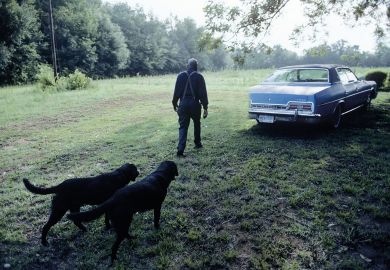Even today, people applying to graduate school feel obliged to say: “My goal is research”, according to Robert Weisbuch, former president of Drew University in New Jersey.
Yet in reality only a small proportion will go on to find a permanent academic position, and failure to acknowledge this often prevents them making the most of their knowledge and talents.
“We teach them to believe they are Lamborghinis,” suggested Leonard Cassuto, professor of English and American studies at Fordham University in New York, “when in fact they are all-terrain vehicles. If you are an all-terrain vehicle and believe you are a Lamborghini, all you are going to do is stay on the racetrack, no matter how much traffic there is on it.”
There are also issues about what universities are able to offer their postgraduates. In the past, explained Professor Cassuto, a tradition of “letting faculty teach whatever they want” worked reasonably well because large numbers of graduate students meant that “someone will be offering a meat-and-potatoes survey, so I can offer my super-specialised course based on my book”. Now, with a narrower range of teachers available, “the curriculum in the humanities can be quite esoteric – it’s like going to the grocery store and finding only preserved plums and lemongrass instead of bread and milk”.
In an attempt to address some of these problems, the two professors have just published a book titled The New PhD: How to Build a Better Graduate Education (Johns Hopkins University Press).
One of the central issues, according to Professor Weisbuch, is that doctoral programmes, although crucial to a university’s reputation, were “often the worst administered” and particularly suffered from “the ‘no one’s watching’ problem”.
The person taking on the role of graduate dean or equivalent, added Professor Cassuto, “is typically disempowered in the area which matters most, namely the money”. In the sciences, “each lab is its own economic entity with a general manager in charge of the money and the labour, leading to an atomised culture even within departments”. This often led to horror stories of students treated as “lab rats”, micromanaged and sometimes exploited as they carried out very routine work which might be useful for the wider research project but taught them few skills.
The best way of addressing this – and the opposite problem of very hands-off supervisors in the humanities – argued Professor Weisbuch, was to beef up the role of the graduate dean so that he or she could “set university-wide standards of what it takes to be a dissertation director” and send out the message that “Somebody is watching. Somebody is the voice of the students.”
Along with encouraging universities to help train their postgraduate students for a wide range of careers, the authors of The New PhD were very keen on them taking their knowledge outside the academy to help local groups meet social challenges. This could benefit them individually but should also help diversify the range of people who embark on PhDs in the first place.
Members of “marginalised groups”, suggested Professor Weisbuch, tend to “have a sense of social responsibility and want their learning to pay off in terms of uplifting others. Programmes that allow for that will be the ones that will attract and retain students of colour, first-in-family students and so on.”







